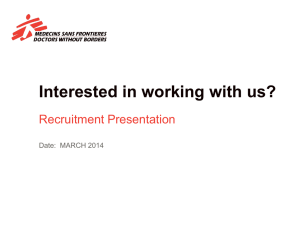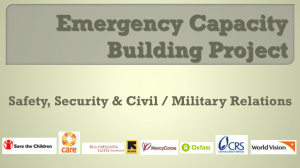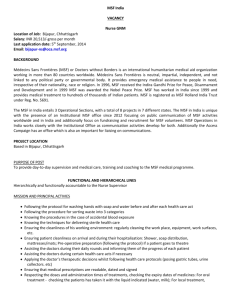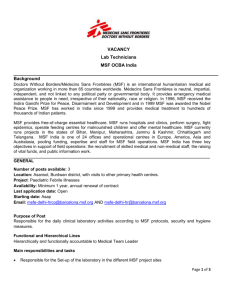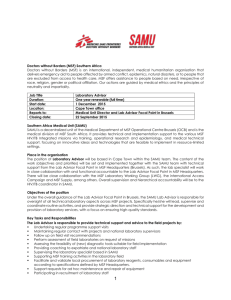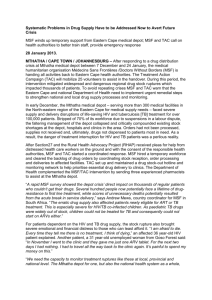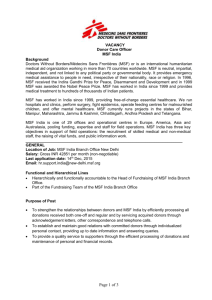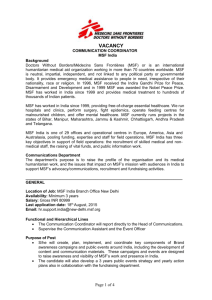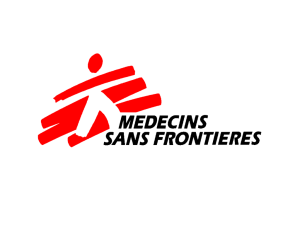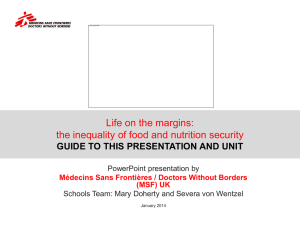Group_project
advertisement
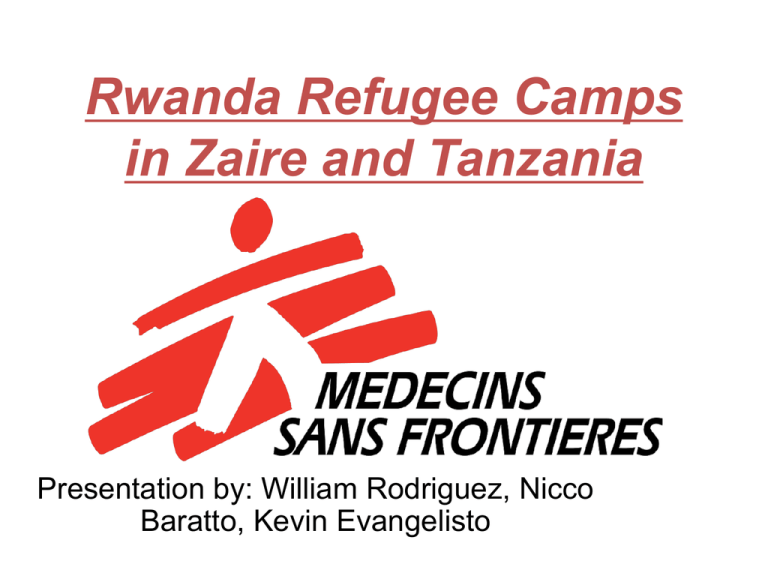
Rwanda Refugee Camps in Zaire and Tanzania Presentation by: William Rodriguez, Nicco Baratto, Kevin Evangelisto Setting the Scene • When: July 1994-December 1995 • Where: Zaire and Tanzania (Predominately along the borders of Rwanda) Setting the Scene (2) Who: Several Organizations and States were involved in the situtation of the Rwandan Refugees in Zaire and Tanzania. These include but are not limited to: RPF: Rwandan Patriotic Forces FAR: Rwandan Armed Forces UNHRC: United Nations High Commisioner Of Refugees MSF: Medecins Sans Frontieres Government of Zaire Government of Tanzania The Situation 1: Rwandan Hutus flee in the wake of the RPF under the instructions of the FAR. 2: Conditions in the camps were horrific in terms of sanitation as well as continued violence on the part of the Hutu Refugees. 3: MSF struggled with the question of whether aiding the genocidares was therefore abetting their genocidal crimes. 4: Eventually the danger outweighed the altruism of MSF and by December of 1995 MSF almost entirely withdrew from the region. Consider These Questions… Should MSF aid political actors who committed genocidal crimes? Is MSF responsible for the violence from their hijacked aid? Camp Conditions • Mass Cholera outbreaks in both the Benaco and Goma camps • Little to no sanitation conditions • Misappropriations of food supplies • Civilian killings MSF’s Views on the Camps “The aid system did not function well - there were breaks in the food pipeline, which caused terrible malnutrition.” Page 12 “No census had been conducted. Huge quantities of food were distributed which the leaders resold… This wasn’t resale on a small scale, but huge quantities of food by the sack-full.” Page 13 “800 people have died of cholera in Goma, according to MSF teams. Thousands more are at risk… As one of the MSF teams drove from Katale to Goma yesterday, they counted 200 dead bodies. “ Organization of Camps • MSF provides evidence of refugee organization through these case studies • Old Rwandan Hutu leaders during the genocide established leadership roles in the camps • As organization increased, violence escalated putting MSF volunteers at risk MSF Opposition Bernard Pécoul, MSF France General Director: “We witness and even participate in the rehabilitation of the executioners through international humanitarian aid. It’s disgusting.” Arjo Berkhout, MSF Holland Coordinator: “I am stopping working for these people because I cannot take any further responsibility for this project.” MSF Statement regarding Central Africa “As militia members and former members of the Rwandan army re-armed themselves from within the camps, cries for action by humanitarian agencies to isolate the perpetrators of the genocide and bring them to justice fell on deaf ears. Consequently the refugees became hostages and relief workers found themselves aiding and abetting the genociders.” Bibliography Médecins Sans Frontières. “Rwandan Refugee Camps in Zaire and Tanzania in 1994-1995.” April 2004 - April 2014. Van Soest, Marcel. "A Statement by MSF Regarding Central Africa for the Hearing at the House of Representatives House Committee on International Relations." MSF USA. MSF USA, 4 Dec. 1997. Web. 27 Oct. 2014.

